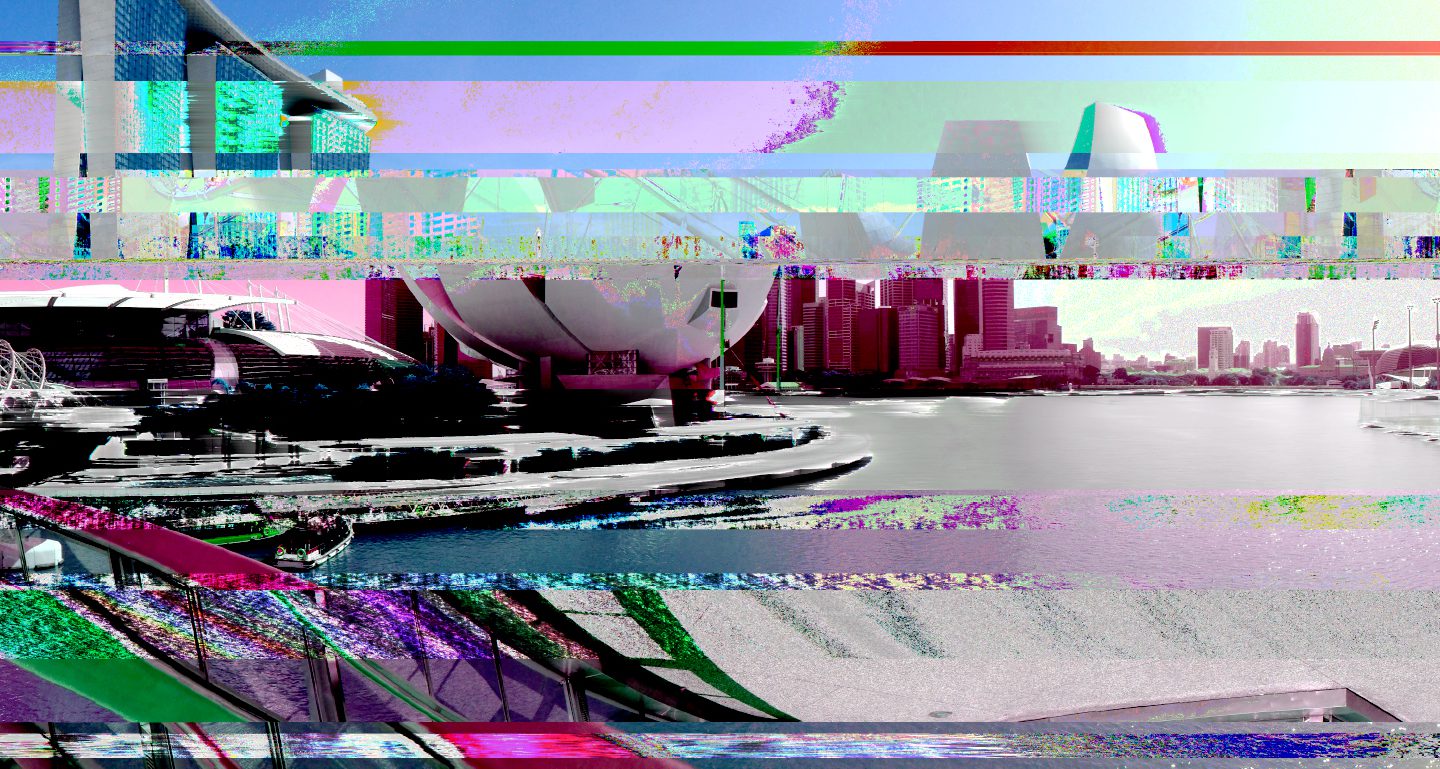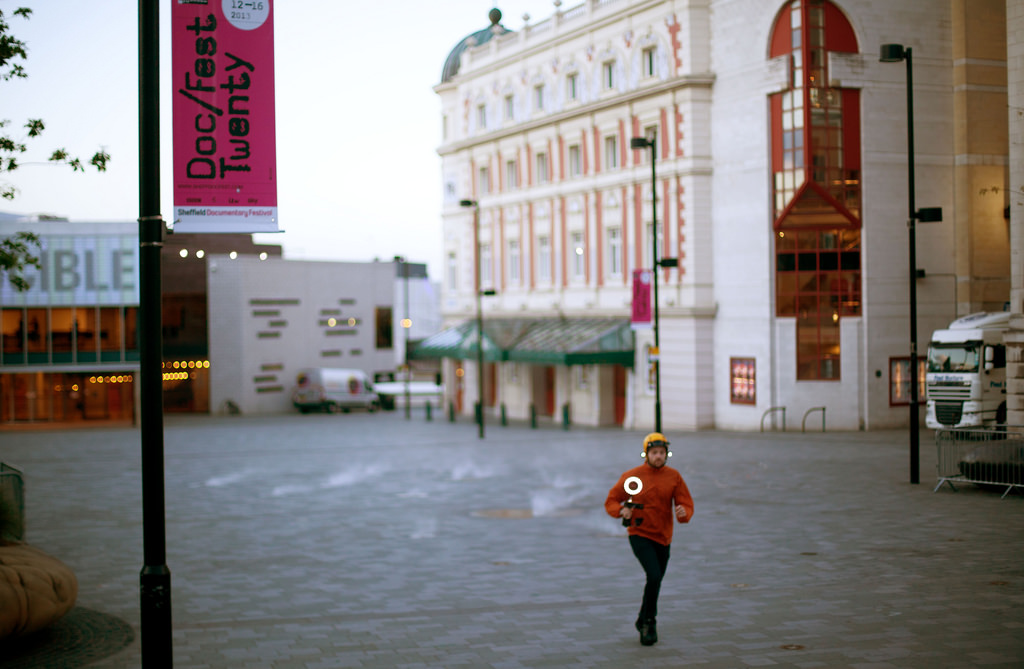Final Project: Glitch Singapore
Glitch Singapore is our class final project inspired by the work of Blast Theory, the UK-based performance group that creates interactive performances that engage the public in site-specific locations.
With Singapore as our stage, the public as participatory viewers, our mobile video devices in hand, student groups will create participatory performance works that blur the boundary between art and life, between reality and fiction, between virtual and real, between artist and audience.
In our Glitch Singapore project, groups will each devise a narrative that plays off of real interactions with each other, Singapore, public, and media.
Each group will design a project through the process of conceptualization, execution, discovery, and exploration. The narrative is to be partly scripted, with a clear structure in mind, but within that structure there will be ample room for surprise, accidents, glitches, errors, mistakes, encounters, laughter, conversation, and other elements that cannot be pre-determined.
Groups will devise a narrative work in which a situation will unfold according to the initial narrative structure, with room for the storyline to be stretched beyond what is imaginable and conceivable. You may feel this is an open structure that might be challenging, but once you develop the core idea, the narrative will take on a life of its own.
Here are some ideas to consider in the development of your concept:
- Begin by brainstorming simple narrative ideas, such as hide and seek, solving a puzzle, interviewing strangers, devising a game, following one another, filming interesting characters, riding the MRT, searching through a park, capturing shoppers in a mall, etc.
- Think about ways to engage the public, striking up conversations, asking questions, involving strangers in the storyline. How would the public alter and change your narrative?
- Decide on a location, or set of locations, such as downtown, the Singapore riverfront, the Botanic Gardens, parks, neighbourhoods and housing estates, industrial areas, etc.
- If you are devising a game structure, decide whether there are winners or losers, points earned and lost, etc. You could revisit the games we played in Micro-Project #1 as a point of reference. What are the rules for your game?
- Determine a specific duration over the course of a day, or spread out over several days.
- By incorporating concepts of “glitch” in your participatory performance, consider how you will introduce glitches, errors, mistakes, surprises and unexpected happenings in spaces or social contexts which you have identified.
- Decide how you want to use your mobile video devices, how will you incorporate existing social networking and live streaming platforms e.g. Facebook Live, Instagram Polls, Adobe Connect etc. to create your participatory performance.
- Decide how you will film, where you will film, and what you will film.
- Decide whether or not to use the camera’s effects or tonal alterations.
- Decide how you want to incorporate sound in your project, the importance of sound, the kinds of sounds whether spoken or ambient.
- Create a Google Doc for each group to include all of your notes, ideas, and descriptions.
- Each member will also create a weekly OSS process post that includes media (images, videos, sounds etc.) documentation and notes.*Remember to assign category “Final Project”.
- The final piece that will be presented in class will be an edited version of your project, approximately 5 minutes in length, that serves as “trailer” for your project.
- You must decide how to condense your project into the trailer form, how to convey the essence of your work in 5 minutes.
- For the final trailer, you can decide whether or not to incorporate a voiceover, music, and other post-production techniques including special effects.
- The final trailer will be uploaded to Vimeo or YouTube on each member’s OSS, accompanied your own personal (1) final description of the concept, (2) how it was made, and (3) what kind of unexpected elements resulted during the filming.*Remember to assign category “Final Project” for your OSS post.
Artists’ Reference
Blast Theory, Uncle Roy All Around You (2003)
A game in which online and street players collaborate to find Uncle Roy before being invited to make a commitment to a stranger.
Blast Theory, Can You See Me Now? (2001)
A game of chase played online and on the streets.
Along with Botfighters, Can You See Me Now? is one of the first location based games. Online players compete against members of Blast Theory on the streets. Tracked by satellites, Blast Theory’s runners appear online next to your player on a map of the city. On the streets, handheld computers showing the positions of online players guide the runners in tracking you down.
Rimini Protokoll, Remote X (2013)
In Remote X, a group of 50 people set off into the city wearing headphones. They are guided by a synthetic voice – as we know them from GPS navigators. The encounter with this artificial intelligence leads the group to perform an experiment on themselves. How are joint decisions made? Who do we follow when we are guided by algorithms?
Rimini Protokoll, Call Cutta (2005)

Who are you when the phone rings?
Does intimicy start when service ends?
Imagine going for a walk with somebody who is not there!
A 60-minutes Mobile Phone Theatre by Haug/Kaegi/Wetzel
THE PLAY STARTS THE MOMENT YOUR CELL PHONE IS RINGING.
YOU WALK THROUGH THE CITY, THE SHOW IS AT THE PHONE.
Project Milestones
Week 9
Groups will formulate a Final Project concept for in-class discussion with tutor.
Week 10
Groups will meet with tutor and present documentation of the ongoing conceptualization and development of the Final Project via OSS. Each group will discuss with tutor its project at this meeting.
Week 11
Each group will work on the Final Project and bring materials for in-class production.
Week 12
Groups will complete the Final Project for presentation on Week 13.
Week 13
Students will present and review all Final Projects in class.
(Adapted from Randall Packer’s Final Project – On Location Performance)

